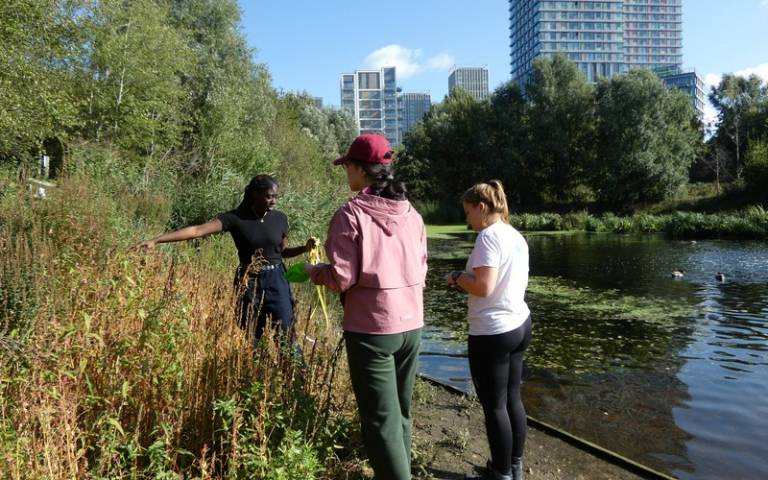New UCL MSc to equip ecologists with cutting-edge data science tools
A new MSc at UCL is closing the skills gap for ecologists and conservationists, equipping them to apply analytical sensor technologies and artificial intelligence to environmental challenges.

14 December 2023
Recent advances in technologies such as high-resolution satellite imagery, visual and audio sensors, geospatial tracking devices and environmental DNA, are revolutionising how environments can be monitored.
However, the huge and detailed data sets that are created require expert analysis and interpretation and currently a skills and knowledge gap exists between the experts generating the data and those who can interpret it to develop strategies to manage ecosystems and protect our natural habitats.
The new MSc in Ecology & Data Science is designed to close that skills gap and provides students with the interdisciplinary skills and practical expertise needed to apply cutting-edge data science, citizen science, sensor technologies and artificial intelligence to monitor and manage ecosystems and wildlife populations.
Its five core modules explore computational, analytical and sensor-based tools to monitor and assess biodiversity and model environmental data using advanced machine learning techniques.
The course, led by Professor Kate Jones (UCL Genetics, Evolution & Environment), is taught by a team at the new People & Nature Lab at UCL’s new UCL East campus, in collaboration with experts from other departments across UCL, including Computer Science, Geography, Civil, Environmental & Geomatic Engineering, and the Bartlett Faculty of the Built Environment.
In addition, external experts at the Zoological Society of London and the Natural History Museum contribute their expertise and provide mentoring for student projects.
“We encourage students to think about systems, exploring how the technical concept they choose can be applied in a practical way to inform real world conservation.”
In its first year the course attracted 17 students from a mix of data-science, biology and geography disciplines. The 2023/24 course was quickly oversubscribed and has 45 students.
“Students also carry out a ‘nature smart’ project that involves partnerships with community groups,” explains Professor Jones. These include the London Wildlife Trust, Thames21 and the UK Centre for Ecology & Hydrology [UKCEH].
Each organisation set the students an ecology-related monitoring challenge using a new approach or technology. For example, UKCEH is installing automated moth monitoring systems in several countries, but some locations, for example, the Amazon, lack necessary infrastructure such as power. Therefore students were tasked with identifying ways to deploy the technology in low resource settings. At the London Wildlife Trust, students developed a way to effectively map the distribution of water voles using environmental DNA.
Students also undertake a technology focused research project. For example, in one project a team used data from acoustic sensors set up in conservation areas to develop machine learning algorithms that can provide more detailed analysis of the impacts of conservation projects.
“We encourage students to think about systems, exploring how the technical concept they choose can be applied in a practical way to inform real world conservation,” says Professor Jones.
 Close
Close


